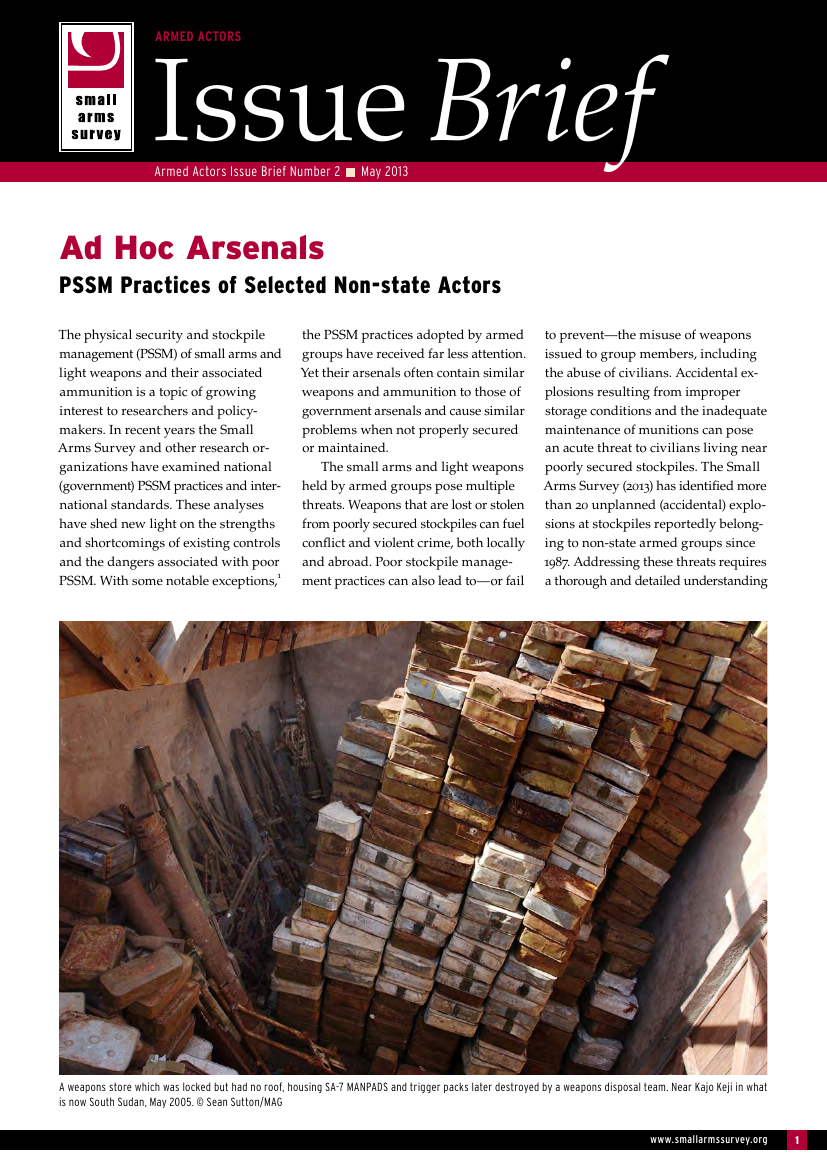
Ad Hoc Arsenals: PSSM Practices of Selected Non-state Actors (Armed Actors Issue Brief 2)
The small arms and light weapons held by non-state armed groups—such as opposition and insurgent movements, pro-government militias, and community-based vigilante groups—pose multiple threats.
Weapons that are lost or stolen from poorly secured stockpiles can fuel conflict and violent crime, both locally and abroad. Poor stockpile management practices can also lead to—or fail to prevent—the misuse of weapons issued to group members, including the abuse of civilians. Accidental explosions resulting from improper storage conditions and the inadequate maintenance of munitions can pose an acute threat to civilians living near poorly secured stockpiles.
The physical security and stockpile management (PSSM) of small arms and light weapons and their associated ammunition is a topic of growing international interest, but the PSSM practices adopted by non-state armed groups have received far less attention than those of government forces. Yet their arsenals often contain similar weapons and ammunition to those held by government forces, and cause similar problems when not properly secured or maintained.
A new Small Arms Survey Issue Brief—Ad Hoc Arsenals: PSSM Practices of Selected Non-state Actors—analyses the practices of armed groups in three countries: the Misrata revolutionary brigades in Libya, the Revolutionary Armed Forces of Colombia (FARC), and the Sudan People’s Liberation Army (SPLA).
The research finds that strategic and military considerations have a significant impact on the PSSM practices of armed groups. The SPLA and FARC intentionally avoid using large, purpose-built depots, and all of the groups studied placed strong emphasis on concealing and protecting stockpiles from enemy attack, capture, and diversion.
The case studies also reveal significant variation in the type and rigour of PSSM practices, both among and within the groups studied.
To secure armed groups’ stockpiles in accordance with international best practices would involve significant investments in infrastructure, and in many cases could not be accomplished until after the conflicts in which they are involved have ended. These case studies thus highlight the need for adjustments to conventional PSSM best practices to make them more applicable to a broader array of armed actors.
Have your say about Small Arms Survey publications and products: take 5 minutes to fill out our questionnaire.